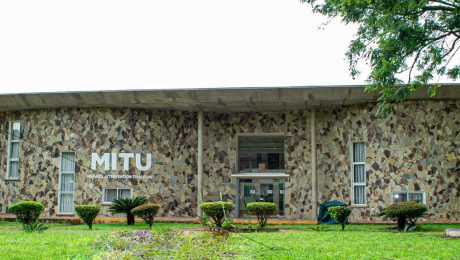Peer Counsellor Intervention for Reducing Mortality and/or Hospitalization in Adults with Hypertensive Urgency in Tanzania: A pilot study.
Kisigo GA, Mgeta F, Mcharo O, Okello E, Wajanga B, Kalokola F, Mtui G, Sundararajan R, Peck RN.
Am J Hypertens. 2023 Apr 22:hpad037.
DOI: 10.1093/ajh/hpad037. Epub ahead of print.
PMID: 37086189.
Men’s Reflections on Romantic Jealousy and Intimate Partner Violence in Mwanza, Tanzania.
Aloyce D, Stöckl H, Malibwa D, Peter E, Mchome Z, Dwarumpudi A, Buller AM, Kapiga S, Mshana G.
Violence Against Women. 2023 May;29(6-7):1299-1318.
DOI: 10.1177/10778012221108421. Epub 2022 Aug 30.
PMID: 36039538;
PMCID: PMC10090525
The Mwanza Intervention Trials Unit (MITU) based at the National Institute for Medical Research (NIMR) campus in Mwanza, Tanzania is a collaborative research unit of NIMR and the London School of Hygiene and Tropical Medicine. The mission of MITU is to contribute to improving health through the development and evaluation of interventions against infections and other health problems by conducting research, including clinical trials, to the highest international standards. MITU also aims to enhance the capacity to carry out such research in Tanzania and to contribute to the translation of research findings into health policy. The Unit is now inviting applications from motivated and suitably qualified candidates to fill the below position that will be based at NIMR campus, Mwanza.
Position: FINANCE OFFICER
We are seeking to appoint an ambitious and highly motivated finance officer with experience in accounting and financial management, he/she will closely work and will be supervised by the Senior Finance Officer as part of the finance team of the Unit.
Principal responsibilities
- Preparing payment vouchers as well as revenue vouchers and submit for processing in accordance with the laid down rules and regulations
- Assist in issuing invoices for project expenses to donors/funders
- Managing records, receipts and process invoices
- Filling payments and receipt vouchers and ensure safety of accounts files
- Filing simple statutory returns with relevant institutions
- Resolve financial disputes raised by the customers, vendors or the project team
- Supporting the Senior Finance Officer and other staff with projects tasks whenever required
- Assist in preparing monthly, quarterly and annual financial statements
- Monitor and report on daily and monthly reconciliations, identify and solve any accounting discrepancies
- Assembling data for tax filings where and when required and keeping abreast of some tax related information.
- Maintaining primary records and assist in preparation of simple management reports
- Assist with reviewing of expenses, payroll records etc. as assigned
- Update financial data in databases to ensure that information will be accurate and immediately available when needed.
PERSON SPECIFICATION
Essential criteria for selection
- A relevant accounting qualification, such as a degree in Accounting, Finance or Business Administration
- A minimum of 2-year experience working within a similar organisation.
- Experience preparing management accounts using computerised software packages such as ERP Navision, SUN, QuickBooks etc.
- Excellent working knowledge of Excel or related software.
- Experience of preparing and monitoring budgets and financial reports.
- Excellent verbal and written communication skills in English and Swahili.
- Self-motivation and effective time management skills.
Desirable criteria for selection
- Experience working with projects funded by international organisations.
- Experience working as part of the team in a multicultural environment.
- Ability to carry out multiple tasks and meet strict deadlines.
- Good interpersonal and communication skills.
MODE OF APPLICATION
E-mail applications to recruitment@mitu.or.tz with the following:
- Detailed supporting statement/letter – Whereby each section should set out how your qualifications, experience and skills meet each of the essential and desirable criteria within the person specification. Please provide one or more paragraphs addressing each criterion. The supporting statement is an essential part of the selection process and thus a failure to provide this information will mean that the application will not be considered. An answer to any of the criteria such as “Please see attached CV” will not be considered acceptable.
- Please include a daytime mobile telephone number and e-mail contact details.
- Curriculum vitae (CV) including names and addresses of two referees (one must be from your most recent employer or training institution).
CLOSING DATE FOR APPLICATION
- Applications should be received no later than 15 May 2023.
- You will be informed by email if you are selected for interview and only shortlisted candidates will be contacted.
- Interviews will be held in person at the NIMR Mwanza Centre, Isamilo, Mwanza.
Pathways of romantic jealousy to intimate partner violence in Mwanza, northern Tanzania.
Aloyce, D., Mshana, G., Peter, E., Malibwa, D., Buller, A. M., Mchome, Z., Kapiga, S., & Stöckl, H.
(2023). Family Relations, 1– 15.
Understanding traditional healer utilisation for hypertension care using the Andersen model: A qualitative study in Mwanza, Tanzania.
Sundararajan R, Alakiu R, Ponticiello M, Birch G, Kisigo G, Okello E, Peck RN.
Glob Public Health. 2023 Jan;18(1):2191687.
DOI: 10.1080/17441692.2023.2191687.
PMID: 36973183.
The association between alcohol consumption and intimate partner violence in young male perpetrators in Mwanza, Tanzania: a cross-sectional study.
Shubina O, Mshana G, Sichalwe S, Malibwa D, Mosha N, Hashim R, Nahay F, Ayieko P, Kapiga S, Stöckl H.
Glob Health Action. 2023 Dec 31;16(1):2185967.
DOI: 10.1080/16549716.2023.2185967.
PMID: 36927456;
PMCID: PMC10026741.
Disability and intimate partner violence: A cross-sectional study from Mwanza, Tanzania.
Mayer S, Mosha N, Shakespeare T, Kuper H, Mtolela G, Harvey S, Kapiga S, Mshana G, Stöckl H.
Disabil Health J. 2022 Nov 16:101404.
DOI:10.1016/j.dhjo.2022.101404. Epub ahead of print.
PMID: 36522283.
The Mwanza Intervention Trial Unit (MITU) is a collaborative research Unit based at the National Institute for Medical Research (NIMR) campus in Mwanza, Tanzania. The mission of MITU is to contribute to improving health through the development and evaluation of interventions against HIV and other health problems by conducting research, including clinical trials to the highest international standards; to enhance the capacity to carry out such research in Tanzania, and the East African Region; and to contribute to the translation of research findings into health policy.
MITU is now working to implement several vaccination trials in Tanzania, involving both HPV and COVID vaccines. These are randomized clinical trial to assess the safety and protectiveness of these vaccines. MITU is now inviting application from suitably qualified candidates with vaccination experience for the following position:
MITU is now inviting application from suitably qualified candidates for the following position:
Position: Pharmacist Technician
The post-holder will work closely with the trial pharmacist, Principal Investigators and coordinating team to operationalise the trial.
Specific responsibilities
- To ensure proper preparation, handling, cold chain maintenance and storage of vaccines according to the study protocol, standard operating procedures and Good Clinical Practice.
- To manage temperature monitoring and deal with temperature out of range (TOR) events.
- To ensure that all pharmacy-related activities are implemented according to the study protocol and Good Clinical Practice.
- To ensure compliance with all aspects of pharmaco-vigilance for the clinical trial, including liaison with the regulatory authorities where required.
- To assist in the maintenance of vaccine accountability documentation.
- To follow correct pharmacy waste disposal procedures and assist in the disposal of unused or expired vaccines and drugs when required.
- Assist in stocktaking and ensure other medications prescribed by study clinicians for study participants are stored and dispensed appropriately.
- To report to the trial pharmacist, trial manager and study investigators; work with the wider clinical trial team; and attend team meetings.
- To report any incident which may affect the integrity of the trial to the trial coordinating team and Principal Investigator.
- To perform any other trial-related activity as may be requested by members of the trial management team.
Essential criteria
- A diploma in pharmaceutical sciences.
- At least two years’ practical experience supporting pharmacy activities within a clinical trial set-up.
- At least two years’ experience in vaccine handling, maintenance of cold chain and managing temperature excursions.
- Excellent numeracy skills and attention to detail.
- Computer literacy including demonstrable proficiency with Word, Excel.
- Willingness to work outside of normal working hours on occasions as the work demands.
- Excellent written and oral communication skills in English and Swahili.
- Strong organisational skills with proven ability to work effectively within a team, assess prioritise and manage workload with minimum supervision.
Desirable criteria
- Up-to-date GCP training.
- Experience of communicating or liaising with the Tanzanian regulatory authority for clinical trials.
Mode of application and requirements
- Interested applicants should submit a letter of application together with their CV and copies of all relevant certificates to recruitment@mitu.or.tz no later than 31 March 2023.
- The applicants should clearly state the job title for which they are applying in the subject line of the email.
- All attached documents should be saved using the candidate’s name.
- Applicants should also include the names and email contacts of 2 referees who can be contacted immediately if shortlisted.
- Applicants without suitable qualifications/registration or vaccination experience will not be considered.
Interviews will be held at the earliest available opportunity and only shortlisted candidates will be notified if selected for interview.
MITU is an equal opportunities organization. Female applicants and people with disabilities are highly encouraged to apply.
Policy and stakeholder analysis to inform advocacy on drowning reduction among fishers in southern Lake Victoria, Tanzania:Report.
Plummer ML, Mashauri E, Moshi A, Durrance-Bagale A, Ayieko P, Howard N.
Project Report. London School of Hygiene & Tropical Medicine,London. https://researchonline.lshtm.ac.uk/id/eprint/4662506 (Submitted)
Adolescent Health Series: HPV infection and vaccination in sub-Saharan Africa: 10 years of research in Tanzanian female adolescents – narrative review.
Whitworth H, Changalucha J, Baisley K, Watson-Jones D.
Trop Med Int Health. 2021 Nov;26(11):1345-1355.
DOI: 10.1111/tmi.13660. Epub 2021 Sep 1.
PMID: 34310816.




